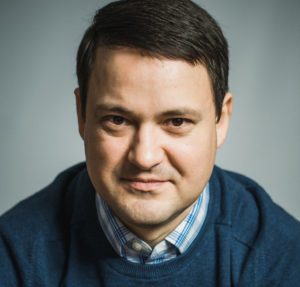How Are Anti-Missionary Laws Influencing the Evangelical Church in Russia?
9.29.2020
 It is remarkable that even during a pandemic there have been numerous instances of limiting the religious freedom of evangelical believers in Russia, mostly fines for distributing spiritual literature and bans on conducting worship services.[1] The fact that the state is so active in its attempts to control the activity of evangelical communities even in the midst of more global problems shows plenty about the priorities of state policies.
It is remarkable that even during a pandemic there have been numerous instances of limiting the religious freedom of evangelical believers in Russia, mostly fines for distributing spiritual literature and bans on conducting worship services.[1] The fact that the state is so active in its attempts to control the activity of evangelical communities even in the midst of more global problems shows plenty about the priorities of state policies.
Recently in the news about religious freedom in Russia, an interesting headline caught my attention, “Vladimir Ryakhovsky Agreed with the Mayor of Novorossiysk About Solving the Problem of Evangelists Conducting Services in the Forest.”[2] The news appeared on Sept. 10 on the official site of the Russian President’s Council on the Development of Civil Society and Human Rights.
Immediately I thought of two things. It was strange to see a Baptist church in the woods as the result of all the heroic efforts of the president of Russia and his Council on the Development of Civil Society and Human Rights. It was even stranger to hear that is necessary to “agree” on the implementation of constitutional rights of freedom of conscience and assembly.
I learned from the news that “believers turned to a human rights defender because in July 2019, the judicial authorities sealed the living room of a residence where a church of evangelical Baptists conducted a worship service. A ban on the owner and other persons using the yard and the residence for religious purposes was imposed by a court decision. As a result, the congregation was completely deprived of a place for worship and forced to conduct worship services in the forest during the summer of 2020.[3]
Thanks to Vladimir Ryakhovsky’s personal intervention, the congregation gained the hope that it could restore worship services in its church building. In order to understand the seriousness of the situation, one should know that Mr. Ryakhovsky is a prominent Russian attorney, a member of the presidium of the President of the Russian Federation’s Council on Development of Civil Society and Human Rights, and co-chairman of the Slavic Center for Law and Justice. His brother Sergei Ryakhovsky heads the very large union of Pentecostals of Russia and even so is considered quite loyal to the Kremlin.
It seems that even such a highly-placed intercessor is unable to defend local churches. The role of the Council regarding “human rights” is more and more becoming a façade, leading to an illusion of freedom and even hiding its absence. At the same time, anti-missionary limitations are becoming a part of a consistent government policy directed against the most active religious congregations that are not controlled by the government.
Forum 18 announced that before it went to the forest, the Novorossiysk congregation was subjected to systematic pressure by the security organs.[4] Its pastor Yurii Kornienko was fined for conducting a worship service in a private home owned by a church member. Although there were only Baptists at the service and although the pastor himself had permission to conduct missionary activity, the ban on using the building was imposed by the Novorossiysk administration. Thus, a small Baptist congregation lost the right to gather in a building and was forced to transfer to the forest.
This event is part of a general problem in which the state does not allow believers to exercise even minimal rights to a designated place for assembly, forcing them into a semi-legal space and clandestine existence. Evangelical believers assemble in private homes not because they do not want to build separate church buildings (“cultic facilities”). Rather, they are not allowed to do this by the state itself, which then punishes them for this. Thus, the state deliberately creates the conditions under which no place for congregations remains in the legal space of social life and then forces them to break up into clandestine small groups or to gather in the forest.
This is a well-known story for local evangelical believers who still continue from the times of furious Soviet anti-religious campaigns when all churches were closed and when believers went underground and gathered secretly in private homes or in remote unpopulated places. Little has changed since then. Although in the first years after the collapse of the USSR, the state closed its eyes to the “self-willed-ness” of the evangelical churches and tolerated their missionary activity, in the last twenty years it transitioned to active countermeasures against further growth and church activity. Even so all this time, the Orthodox Church was allowed full government support and built luxurious religious buildings in the very best locations.
Today we see a shocking contrast between the golden cupolas of the Orthodox Church and the humble congregations of evangelical believers in the forest. These contrasts speak volumes. First, that in distinction from the Soviet practice of fighting against religion as such, the current Russian authorities are quite discriminatory in their attitudes toward religion. They maintain a course of state support for one confession and of marginalizing the others. That which can be controlled winds up in a golden cage. That which opposes control winds up behind prison bars, or in the forest.
Regrettably, many Western experts on religious freedom are inclined to follow the lead of Russian propaganda and to equate the Christian revival in Russia with the expansion of the official Orthodox Church. They are simply deceived by the results of surveys in which the majority of Russian confidently declare their adherence to Orthodoxy. Even more, they are deceived by the beauty of the Orthodox churches. Therefore, instead of solidarity with evangelical believers in defense of their freedom, the experts advise reconciling with the reality of Orthodoxy and the pro-Putin consensus and to accept the rules of the game, which are written in the Kremlin. But there is another path, a narrow path of faith in God and one’s conscience, which leads to the forest, and for some to prison.
I recall my childhood experience of being a part of the underground evangelical community. I committed my life to God in such a church, which we called Church in the Forest. Then we gathered in worship services in deserted places far from the cities and walked many miles to worship God freely in lap of wild nature. There were harsh crackdowns on congregations and frequent fines and searches of homes. But my parents were prepared for this; and we, the children of Christian parents, were proud of their courage and valued our freedom to believe in God and to be faithful to him. Sometimes the church can remain the church only in the forest.
That which occurs today in Russia is not Christian revival but determined state support of Orthodoxy and discrimination against all other confessions. But knowing the history of the evangelical church, including the history of my family which included not a few martyrs and prisoners, I can confidently say that the result of the state’s anti-missionary campaign will be not the cessation of the churches’ missionary activity and the isolation of believers but the general mobilization of the church and the creative search for new forms of service. Having been deprived of buildings, the church does not cease to gather; but it finds its place even in the woods and in prison. The difficulties for the evangelical church created by the anti-missionary laws aid its growth and its active mission much more than gifts or temporary concessions or privileges by the government. The church in the woods is an excellent illustration of the faithfulness to God and its mission. The persecutors of the church never did and never will understand that this history of faithfulness never frightens believers but strengthens their faith and motivates them to a more sacrificial mission.
EDITOR’S NOTE: This article was first published by The Christian Post on Sept. 23, 2020.
Dr. Michael Cherenkov, Executive Field Director
and Mission Eurasia Field Ministries Leadership Team
michael@missioneurasia.org
[1] Russian Evangelicals Fined for ‘Missionary Activity’ During Pandemic https://www.christianitytoday.com/news/2020/august/baptists-russia-religious-liberty-putin.html?utm_medium=ctsocial.
[2] Владимир Ряховский договорился с мэром Новороссийска о решении проблем евангелистов, проводящих богослужения в лесу
http://president-sovet.ru/presscenter/news/read/6416/?fbclid=IwAR3cM0sDIRlMKGgP39wguYqmKIXxruo4O3EH9imnwRjw5NdbOhJmCjeNlSI.
[3] Ibid.
[4] RUSSIA: Losing places of worship // http://www.forum18.org/archive.php?article_id=2505).
